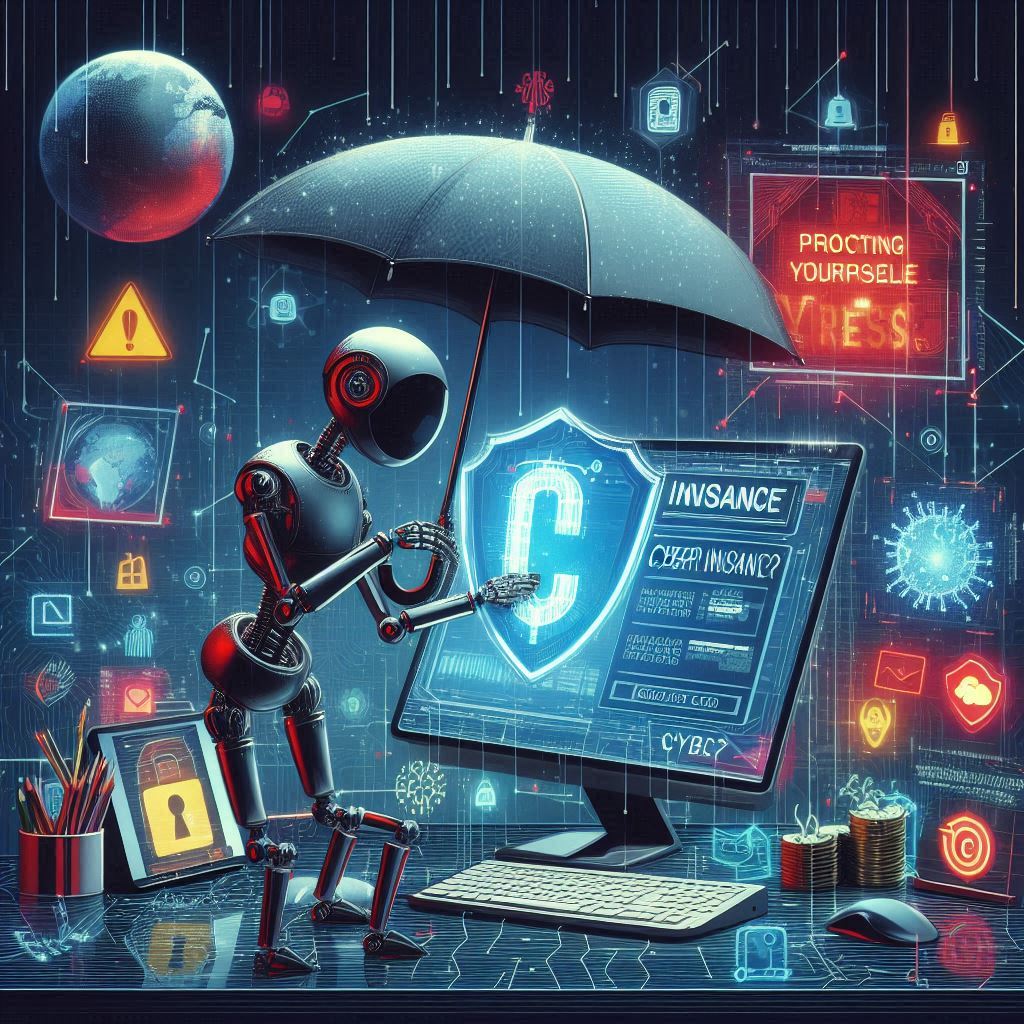Is Cyber Insurance Necessary? Protecting Yourself in a Digital World
As our lives become increasingly digital, the risk of cyber threats—ranging from data breaches and identity theft to ransomware and cyberattacks—has grown exponentially. In this ever-connected world, it’s no longer a matter of if you’ll face a cyber threat, but when. This is where cyber insurance comes into play, offering protection against the financial fallout from cyber-related incidents. But is cyber insurance really necessary for individuals and businesses alike? Let’s break it down.
What Is Cyber Insurance?
Cyber insurance is a policy that provides financial protection against losses resulting from cyberattacks or data breaches. Depending on the type of policy, it can cover a wide range of issues, such as:
- Data breaches: Loss of personal or customer data.
- Cyberattacks: Protection against hacking, ransomware, and other forms of malicious activity.
- Business interruption: If a cyberattack disrupts your operations, cyber insurance can help with lost revenue.
- Legal and regulatory fees: If your business suffers a data breach, the policy may cover legal costs, fines, or penalties.
Why Is Cyber Insurance Important?
1. Rising Cyber Threats
The number of cyberattacks, including data breaches, hacking, and identity theft, has skyrocketed in recent years. According to cybersecurity reports, cyberattacks are increasingly targeting businesses and individuals alike, making it more likely that you will face a cyber incident at some point.
2. Financial Protection Against Cyber Risks
A successful cyberattack can result in significant financial losses, including recovery costs, fines, and legal fees. Cyber insurance provides a financial safety net that can prevent these expenses from derailing your finances.
For businesses, a cyberattack can lead to operational downtime, loss of customer trust, and damage to the company’s reputation, all of which can have long-term financial implications.
3. Compliance with Regulations
Many businesses are required by law to implement specific data protection measures, especially those that handle sensitive information like healthcare data or financial records. Cyber insurance can help cover the costs of complying with these regulations and managing the fallout from a data breach.
What Does Cyber Insurance Cover?
Cyber insurance policies vary, but they generally provide coverage for the following:
1. Data Breach and Data Loss
Covers the costs associated with a data breach, including notifying affected individuals, legal expenses, and data recovery.
2. Business Interruption Coverage
If your business is forced to shut down temporarily due to a cyberattack, your policy can help cover lost revenue during this downtime.
3. Cyber Extortion (Ransomware)
Covers ransom payments to hackers, as well as the costs associated with recovering from a ransomware attack.
4. Legal Fees and Regulatory Costs
Covers the costs of defending against lawsuits, paying fines, or meeting legal requirements following a breach or cyberattack.
5. Network Security and Privacy Liability
Protects you in case of errors or omissions related to your business’s data security practices, potentially covering third-party claims.
Do You Really Need Cyber Insurance?
For Individuals:
While cyber insurance is commonly associated with businesses, individuals can also benefit from it—especially if they’re at high risk of identity theft or data breaches. If you frequently store personal information, shop online, or work remotely, cyber insurance could provide financial protection from:
- Identity theft: Reimbursement for expenses associated with restoring your identity.
- Data loss: Protection for files and documents lost in a cyberattack.
- Cyberstalking: Legal assistance and protection in cases of online harassment or stalking.
However, individuals can often take preventive measures, such as using strong passwords, enabling two-factor authentication, and regularly monitoring their credit, which can reduce the need for cyber insurance.
For Businesses:
Cyber insurance is becoming increasingly necessary for businesses of all sizes. Here’s why:
- Sensitive Customer Data: If you store or handle sensitive customer information (credit card details, social security numbers, etc.), a data breach could lead to significant liability.
- Regulatory Compliance: Many industries have strict cybersecurity regulations, and failure to protect data can result in penalties.
- Cyberattack Risk: With the rise of ransomware and phishing attacks, having cyber insurance can mitigate the financial damage from these types of incidents.
How to Determine If Cyber Insurance Is Right for You
1. Assess Your Risk Exposure
Consider how much personal or business data you store and what cybersecurity risks you face. If you rely heavily on digital platforms or handle sensitive information, cyber insurance could be a prudent investment.
2. Evaluate Your Current Cybersecurity Measures
A strong cybersecurity infrastructure (e.g., firewalls, encryption, regular software updates) can reduce the likelihood of a cyberattack. However, even the best systems aren’t foolproof, and cyber insurance can act as a safeguard if vulnerabilities are exploited.
3. Determine the Financial Impact of a Cyber Incident
If a cyberattack could significantly disrupt your personal or business finances, insurance might be necessary. For businesses, consider the cost of potential downtime, legal fees, and damage control.
4. Consider the Cost of Insurance
Cyber insurance premiums can vary based on the level of coverage, risk factors, and your industry. Compare different policies and providers to find one that fits your budget and needs.
Conclusion
In a digital age where cyber threats are rampant, cyber insurance is becoming more than just an option—it’s an essential part of protecting your financial future. Whether you’re an individual worried about identity theft or a business handling sensitive data, cyber insurance can provide vital protection against the financial consequences of a cyberattack.
For more insights on protecting yourself in a digital world, visit Biochmai.


